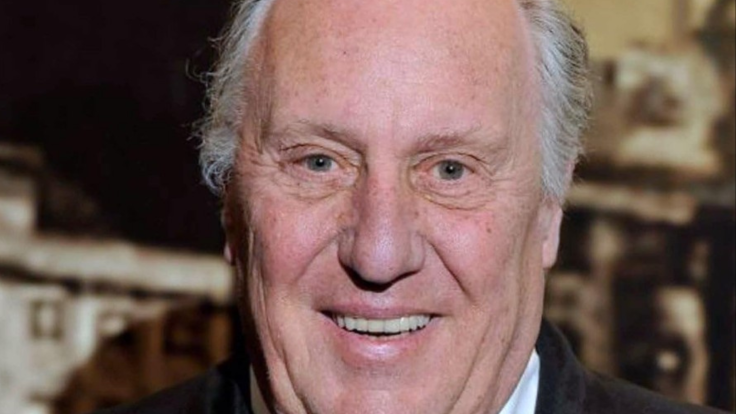Frederick Forsyth: The Jackal Author Turned MI6 Informant — and the Shadowy Contacts That Never Let Him Go
The thriller writer who lived the spy life he only meant to imagin

Frederick Forsyth, the legendary author of The Day of the Jackal, has taken his most intriguing secrets to the grave, but the revelations haven't stopped.
Months after his death, astonishing details continue to emerge about the thriller writer's double life as an MI6 informant, his ties to underworld figures, and the real-life drama that often eclipsed the fiction he became famous for.
The Man Behind the Jackal
Forsyth, who died in June 2025 at the age of 86, left behind more than a bestselling legacy. For over two decades, the acclaimed novelist worked in secret with Britain's foreign intelligence service, while rubbing shoulders with mercenaries, arms dealers and covert operatives.
His life, it turns out, was just as gripping, dangerous and morally complex as the novels that made him a household name.
From Raf Pilot to Global Bestselling Author
Born in Ashford, Kent, in 1938, Forsyth started out as a Royal Air Force pilot before launching a career in journalism with Reuters and later the BBC. But it was in 1971 that he became an international sensation with the publication of The Day of the Jackal — a chillingly detailed tale of a professional assassin hired to kill French President Charles de Gaulle.
The novel captivated readers with its political realism and precise detail, earning Forsyth awards and a global fanbase.
More bestsellers followed, including The Odessa File, The Dogs of War, and The Fourth Protocol. Forsyth's reputation grew not just for his storytelling but for the razor-sharp authenticity of his work. His knowledge of intelligence operations gave his fiction a credibility that set him apart in the genre.
Forsyth's Shocking MI6 Confession
In 2015, Forsyth shocked readers with the revelation that he had been working with MI6 all along. In his memoir The Outsider: My Life in Intrigue, he confessed to passing information to the agency during his years reporting from Africa and Eastern Europe.
'I was never paid, never on staff,' he wrote. 'But during the Cold War, it felt like a duty.'
It all began during the Nigerian Civil War when British officials asked him for updates from the front lines. He agreed and later continued to pass intelligence collected while on assignment abroad. The revelation cemented his image as a man who didn't just write about spies — he was one.
Criminal Contacts and the Plan That Never Happened
Now, further secrets from Forsyth's life are coming to light. A recent Daily Mail investigation uncovered that the author once considered using his criminal connections to confront a man who had embezzled part of his fortune.
The plan was ultimately abandoned, but sources say it reflects just how familiar Forsyth was with the shadowy world he so often described in his novels.
Forsyth frequently spoke of friendships with people on the fringes — arms dealers, former soldiers, and intelligence operatives — whom he met during his time reporting in Biafra and the Middle East. These weren't just passing acquaintances. They were relationships that informed his work and gave him insights few writers could ever claim.
Real People Behind Fictional Characters
Books like The Dogs of War, which centres on a coup in Africa backed by a mining tycoon, were born out of those experiences. For years, readers and critics alike speculated that many of Forsyth's fictional characters were thinly disguised versions of real people he had encountered.
His novels often seemed to foreshadow global events. The Fourth Protocol explored Cold War sabotage, The Fist of God mirrored intelligence failures in the lead-up to the Gulf War, and The Devil's Alternative delved into the inner workings of the Soviet elite.
A Storyteller Who Lived the Spy Life
Forsyth was awarded a CBE in 1997 for services to literature and sold more than 75 million books during his career. But his greatest legacy may be the blurred line he drew between fiction and fact.
Since his passing, Forsyth's dual life has sparked fresh debate online and in literary circles. Fans and former intelligence insiders alike are asking the same question: where did the storyteller end and the spy begin?
To admirers and investigators alike, Frederick Forsyth remains both a chronicler and a participant in the clandestine world he brought so vividly to life.
© Copyright IBTimes 2025. All rights reserved.




















